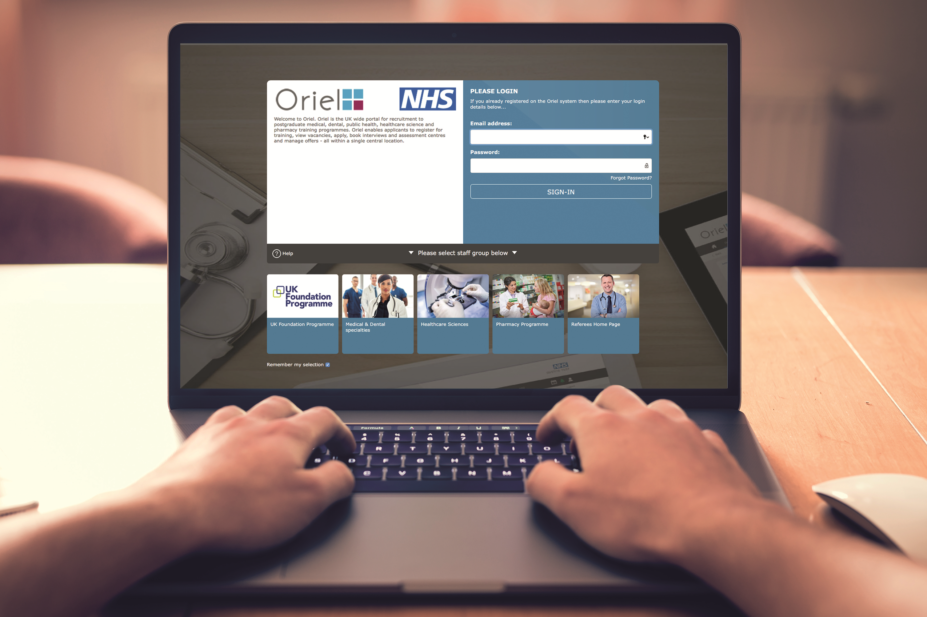
Shutterstock.com
For the second consecutive year, national recruitment to preregistration placements in England and Wales is being conducted through a computerised recruitment tool called ‘Oriel’.
There are 2,992 preregistration places (2,100 programmes) available through Oriel in the 2018/2019 period. These include all NHS hospital preregistration places, and many of the community pharmacy placements for both multiples and independents. There are also 126 GP placements of three to six months’ duration within the scheme.
Preferencing
If you are applying through Oriel, you are now due to select where you want to complete your placement — this is called ’preferencing’. Applications to Oriel opened in June 2018; preferencing starts on 8 August 2018 and ends on 31 October 2018. Before the preferencing window opens, we recommend you spend some time looking at the programmes listed on Oriel and research which programme best suits you. However, you may change your mind at any time within the preferencing period and reorder your preferences.
You must be willing to accept any placement put under the preference or no preference categories as they will only receive one offer from the Oriel scheme
There are three preferencing categories within the Oriel system:
- No preference;
- Preference;
- Not wanted.
‘No preference’ means that you would accept a programme if offered, with no preferred option between them. All programmes will initially be listed here. Students may be offered any placement in the ‘No preference’ category in no particular order.
Programmes that you have a strong inclination towards should be moved to the ‘Preference’ category. You will need to rank programmes in the order in which you would like them to be offered to you, with number one being your strongest preference.
The third and final option is to move programmes to the ‘not wanted’ category. You will not be offered a place at any of these.
You may add as many programmes as you wish to the different categories. Do not limit yourself by not ranking enough places: Health Education England recommends that you rank a minimum of 30 programmes. If you wanted to, you could rank all 2100 programmes. However, it is important to remember that you must be willing to go to any placement you put under the preference or no preference categories as you will only receive one offer from the Oriel scheme.
The following tips are key factors you should consider when making your choices and aim to help you through the preferencing process.
1) Perform a self-assessment
Think about your personal characteristics and values before you make any preferencing choices. This will help you to find your ideal work environment.
Strengths and weaknesses
Start with your strengths and weaknesses. You will be asked what these are during interviews; knowing how your strengths align to what employers are looking for can help you succeed. A SWOT (strengths, weaknesses, opportunities and threat) analysis can help you identify these.
Skills and experience
You may already have certain skills and experience that align to a particular sector or employer, which may influence your choice. For example, you might have worked for many years in a community pharmacy and want to continue in this area. Brainstorming your skills and experience can help you make this choice. Your hobbies and interests might also influence your choices: if you love mountaineering, inner-city living might not be for you.
Future aspirations
You may also want to consider where you see yourself in five years. What type of career do you want? Do you want to work in one sector or would you rather work in multiple areas? If the latter is more appealing, a multiple placement preregistration year might be the choice for you.
You should consider how adaptable you are — if you need time to settle into new places then a 12 month programme might be for you
Adaptability
The preregistration year is a time of change for all students. You should consider how adaptable you are — if you need time to settle into new places then a 12 month programme might be for you. If, however, you can adapt quickly then a multiple placement programme might interest you.
Logistics
The geographical location of programmes is an important consideration. Think about any strong desire to work in a particular area; for example do you want to return home after studying? Does your family have certain expectations? Do you want to stay local to your university where you may have a different support network?
Remember that being too restrictive on location may limit your opportunities as some programmes within a set area may be very competitive.
2) Know your sector preferences
The next thing to do would be considering the employer and the preregistration programmes you prefer. By now, you should have had some experience in at least community and/or hospital pharmacy. Use these experiences to decide which sector you prefer. The benefit of Oriel is that you can apply to all sectors if you want to, so do not worry if you find it difficult to make up your mind at this stage. You could also consider a split placement — for example, six months in community and six months in hospital.
Hospital pharmacy
If you decide that hospital pharmacy is for you, the next step is to compare the available programmes and decide how to rank them.
Within the hospital sector there will be no difference in salary between programmes — you will be paid at a band 5 salary. At the time of writing, this meets the minimum salary for students requiring a tier-two visa. You should seek specialist advice for any further visa information.
The training you would receive in hospitals may also differ. Do you have specialist areas that you have an interest in developing? If not, then you may wish to move specialist hospital programmes to the ’not wanted’ or ‘no preference’ category. Also consider the training programmes offered — these will often be regionally based, offering the opportunity to meet with other trainees.
Unlike hospital, community employers can choose whether to recruit through Oriel or externally
Community pharmacy
Unlike hospital, community employers can choose whether to recruit through Oriel or externally. Some have decided to include all of their places, whereas others are putting a number on Oriel and recruiting the rest externally. So how do you choose between those that are in Oriel?
You should consider whether you want to work for a multiple or a single independent pharmacy. There are many different sized multiples, from large ones with several hundred stores (e.g. Boots, Lloyds and Well) to independent ones with a handful of stores in a smaller area. Independent pharmacies are often owned and run by the pharmacist. There are advantages and disadvantages of working for both types of employer. Some students like the idea of working for a larger company and the opportunities this may afford. For example, the ability to move between stores should issues arise. However some students might find that the ‘family-like’ atmosphere of a smaller company better suits them.
Larger multiples often have internal training departments providing the opportunity to meet with other preregistration trainees; however, smaller multiples and independents often ‘buy in’ training from external companies so not to disadvantage their trainees. It is highly recommended that you investigate what training is provided by the employer.
Unlike hospital pharmacy, there is no set rate of pay for community preregistration trainees, so pay may not meet the Home Office requirements for tier-two visas. The Oriel system will allow you to filter which employers are tier-two sponsors.
For all sectors, you may want to consider whether you wish to work alongside other trainees in your workplace. Big hospitals and community pharmacies may offer more than one preregistration trainee position. Would it suit you to work with others or would you prefer to be the centre of attention? Even if you are the sole trainee, study days and social networks will allow you to keep in touch with others.
3) Do your research
Try to attend an open day or contact the pharmacy before deciding how to rank them; you might find out a lot more about the experiences available during the year and whether these meet your expectations. It is important to find out about the working conditions, hours and physical demands of the position.
There is a lot of information on the Oriel website; however, this cannot replace first-hand experience. You will also have the opportunity to find out about the employer’s values and attitudes and whether you will fit in their workplace.
Talking to the employer may also give you the opportunity to find out about future job opportunities — do they have a history of employing preregistration trainees after qualification? There may be more opportunities with larger employers for continued employment after qualification. Of course, you also may decide that you want to move on after 12 months.
The choices you make at this stage are important; however, they will not define your whole career. Remember, whichever sector you end up completing your training in, you will all sit the same exam at the end of the year.
For more support on preferencing and ranking please see:
- Preregistration pharmacy recruitment applicant guide 2019
- Preferencing tutorial video
- Health Education England national recruitment scheme newsletter June 2018
About the authors:
Karen Gunnell is a teaching fellow in pharmacy practice and Kerry Neville is an academic clinical educator, both at Keele University.


